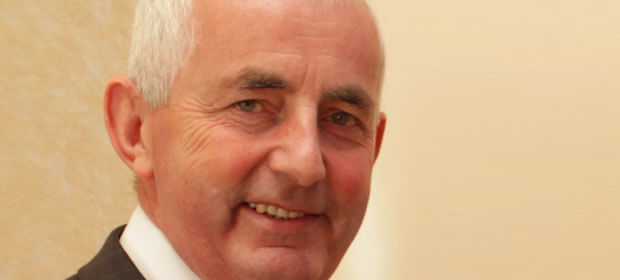There are approximately 1,200 actions associated with the Croke Park Agreement underway in the four HSE regions at present, Pat Harvey, independent Chair of the Croke Part Health Sector Implementation Body told the Forum.
There are approximately 1,200 actions associated with the Croke Park Agreement underway in the four HSE regions at present, Pat Harvey, independent Chair of the Croke Part Health Sector Implementation Body told the Forum. The health sector implementation body is one of the sectoral implementation bodies established on foot of the agreement.

“Capturing ‘the story’ of all the good work that is happening throughout the country and in so many settings in health (acute hospitals, primary care, mental health, people with disabilities, older people, shared services and administration, emergency services and such like) is a major challenge. On the one hand it is all so voluminous; on the other the successes and cooperation has to be distilled into summaries at the risk of understating impact, which is a major challenge.”
Harvey also stated that the local media needed to be alerted directly to these many initiatives. It was hugely important that the public needed to be advised about the confidence building news – the four presentations at the HMI conference were excellent cases in point!
He said he had come across nothing as substantial and with such leverage as the Croke Park Agreement in the past and it was unlikely to be surpassed. A deal had been done! Staff had security of pay and tenure and in turn they were agreeable to accommodate and facilitate service managers in reforming and re-configuring services.
He had come across nothing as substantial and with such leverage as the Croke Park Agreement in the past and it was unlikely to be surpassed
He acknowledged the good work that the HMI could offer and was delighted to see the Institute reaching out more into the regions in sessions such as this. Management needed such support from organisations such as the HMI, particularly at this time.
He said that we were now into year two of a four year programme and he felt that in addition to squeezing efficiencies out of the service we also needed, in parallel, to continue thinking about “big ideas”. Fundamentals needed to be explored. Conventions needed to be challenged. The country is saying it cannot afford the service costs of the past. The service needs however still exist. It is national policy to maintain service levels as much as possible. So to ensure we get the most out of whatever resources are available demands continuing innovation in thinking, in service form and cost.
People should be open to change and not be nervous about engaging with new ideas. Change is coming about and the important thing is to do it in a caring but innovative way, and in being proactive ensure poorer alternatives do not come about by default.
Harvey went on to illustrate some ideas and challenges to convention that were circulating ‘in the stratosphere’. The specifics were not important to discuss at this stage and in this particular forum – only that two themes are demanded: ‘out of the box’ thinking in parallel with programmes ensuring that all day to day costs and inefficiencies are driven down to a minimum. With regard to the latter, from ‘Joe Public’s’ perspective, the least that he expects is that the optimum use is being made of all existing resources before there is any compromise to service.
Finally, in a question and answer session, he referred to the dedication and loyalty of the service providers in this difficult time. He agreed with other speakers that there can be real challenge in going to work everyday against the backdrop of never ending resource difficulties and often negative media coverage. He reminded attendees however of the power of the health service staff (over 100,000 ‘ambassadors’) to influence, positively, public opinion. “We tell stories in our local family and community settings – let us work to make them all good stories about service improvements and such like,” he concluded.

